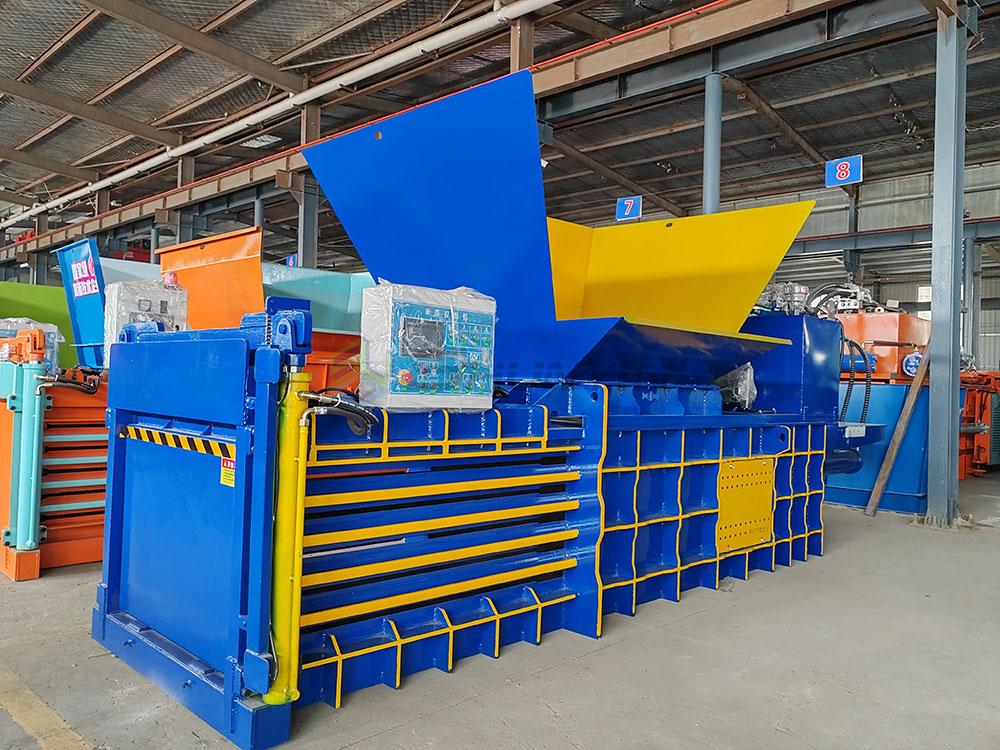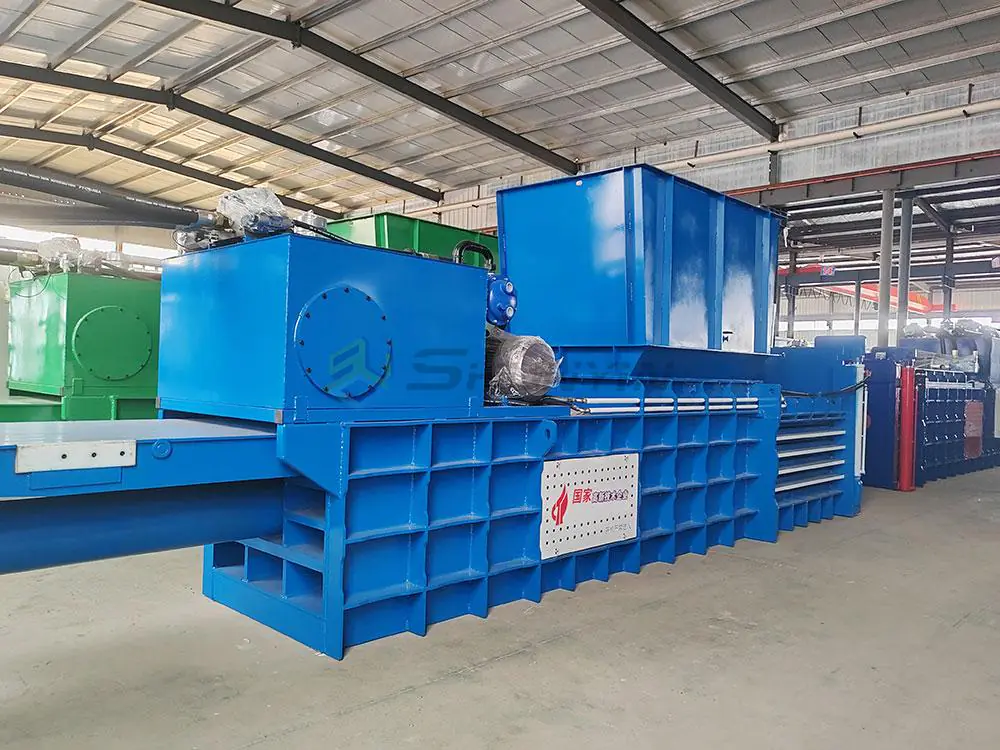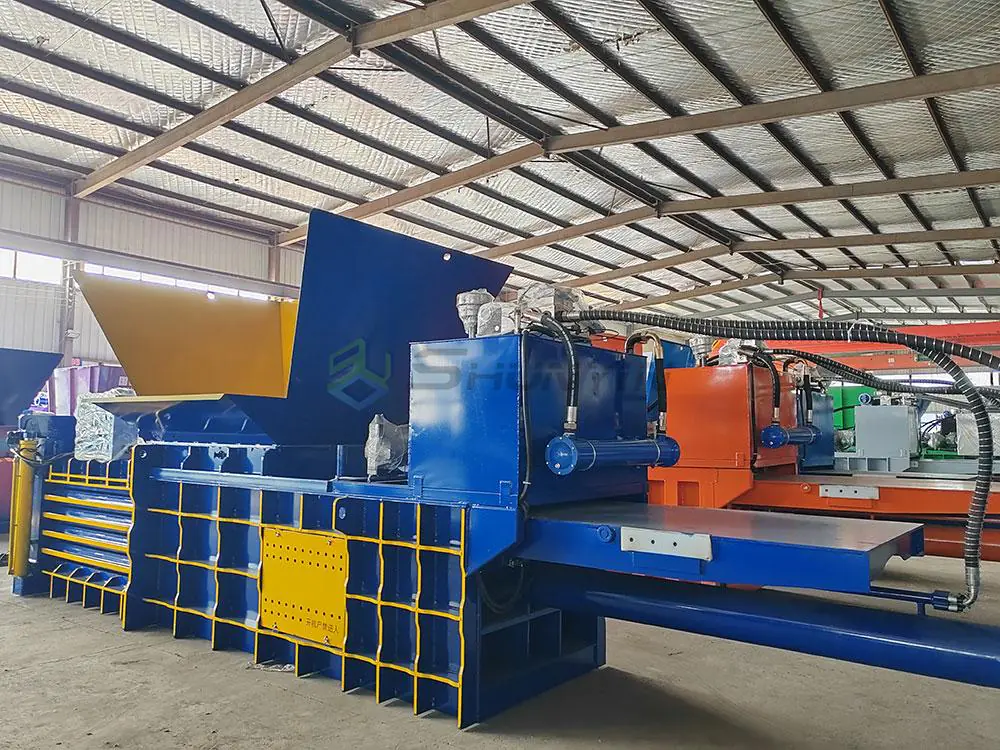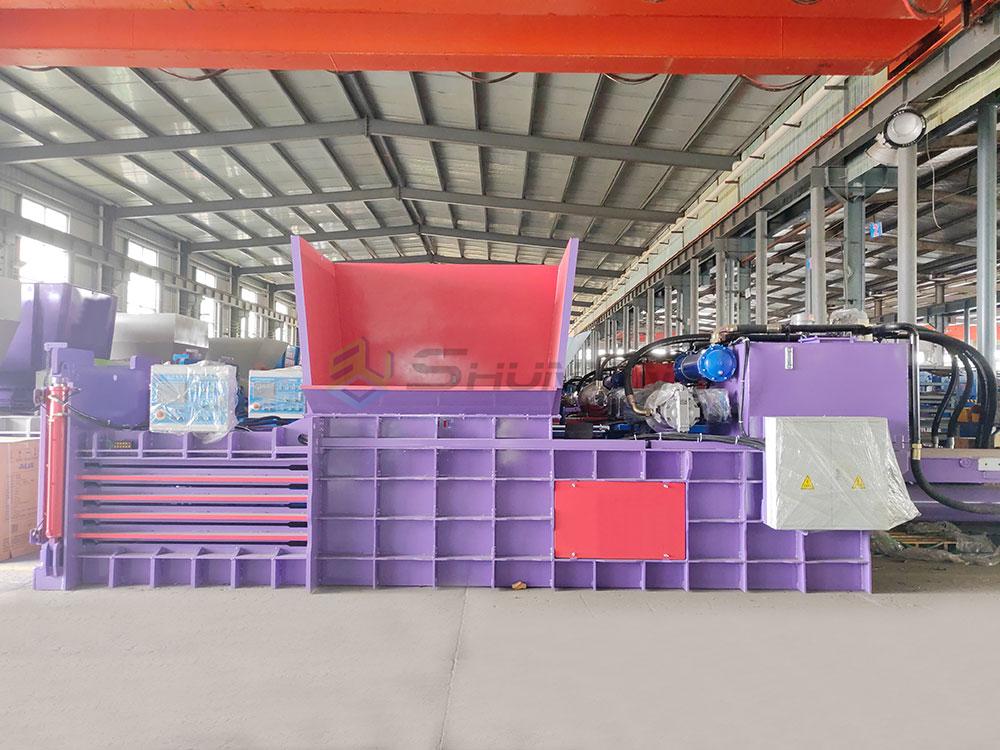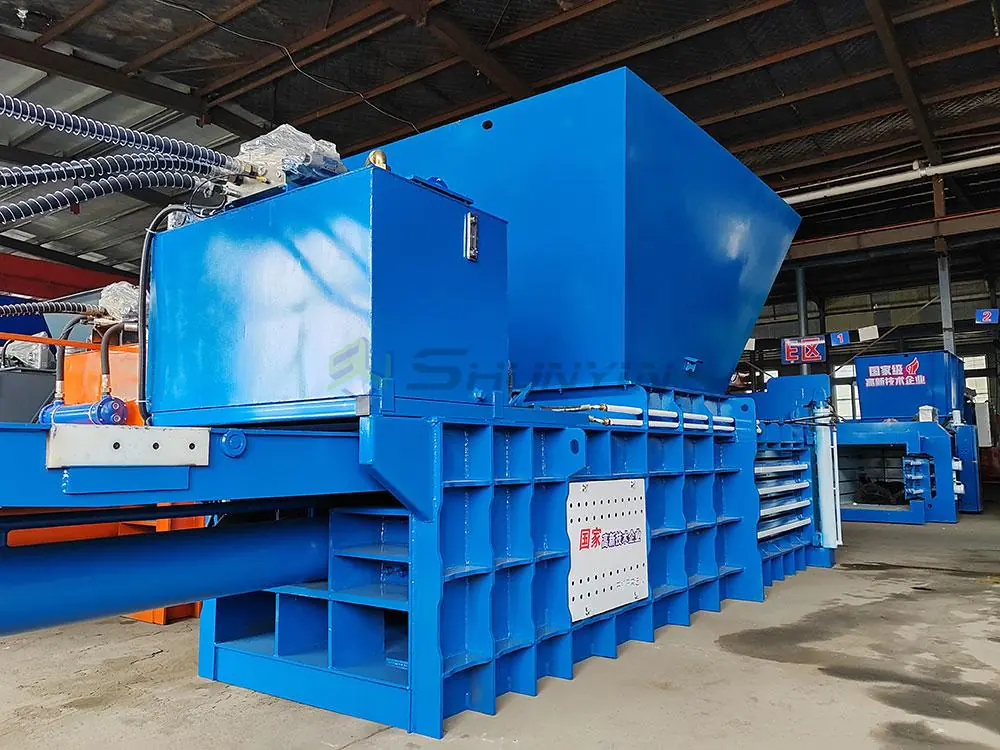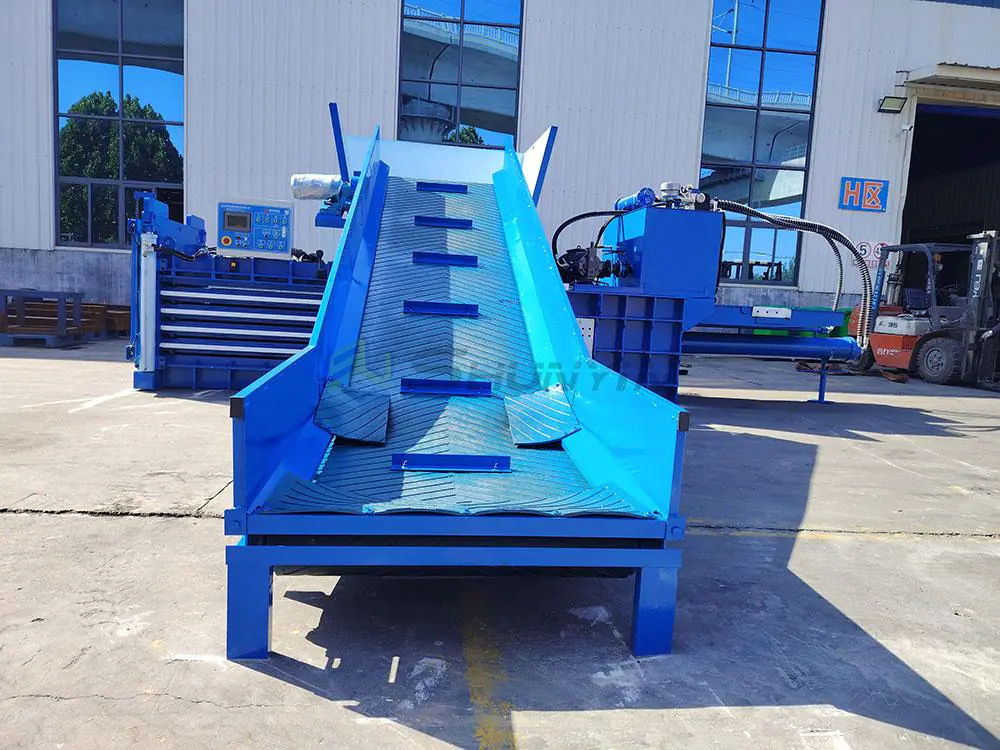Farm waste piles up relentlessly after harvests. Storage areas become unusable without compaction. Heavy-duty horizontal balers transform bulky agricultural waste into manageable, transportable blocks efficiently.
Our industrial-grade horizontal balers compress crop residues into 800-2000kg bales using reinforced 150-ton hydraulic systems. Farmers significantly reduce storage space and logistics costs while creating value from straw, silage, and plant stalks previously treated as waste.
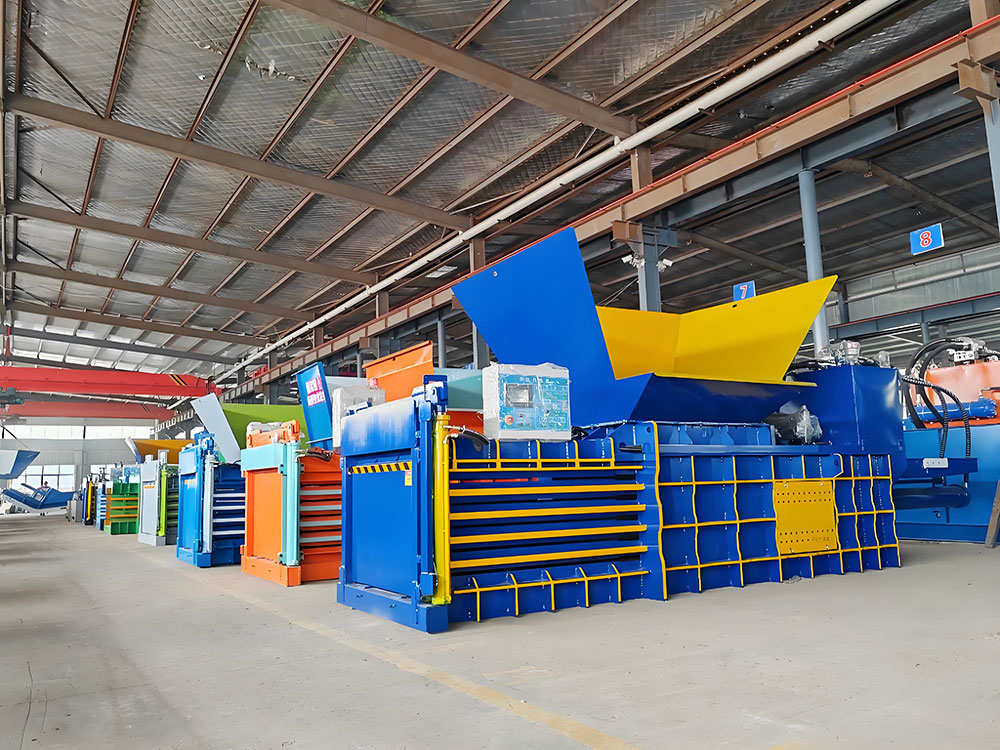
Agricultural waste doesn’t have to burden your operations. Discover how cutting-edge baling technology solves persistent farm waste challenges as we explore your key questions.
What Exactly Defines a Scrap Baler?
Confusion between agricultural and industrial balers creates purchasing mistakes. Equipment mismatches lead to breakdowns. Clear definitions guide proper selection.
Scrap balers compress recyclables like metal or plastic, while agricultural balers handle organic materials. Our SY-H880 agricultural models feature corrosion-resistant chambers and moisture-tolerant hydraulics specifically designed for field waste processing.

Technical Distinctions Impacting Agricultural Performance
Material composition demands specialized engineering. Organic waste requires different handling than industrial scrap.
Functional Adaptation Comparison
| Feature | Metal Scrap Balers | Agricultural Balers (Ours) |
|---|---|---|
| Chamber Lining | Armor plating | Anti-adhesion coating |
| Compression Speed | Slow (3-5 cycles/hr) | Fast (8-12 cycles/hr) |
| Hydraulic Filters | Standard particulate | Moisture-control system |
| Mold Prevention | Not required | UV sterilization optional |
| Safety Features | Fragmentation guards | Dust explosion prevention |
Organic material properties need special attention. Higher moisture in farm waste risks mold buildup during storage. Our balers include optional dry-air injection systems. Material density varies dramatically. Light straw requires different compression cycles than dense corn stalks. We pre-program force profiles for twenty crop types. Transportation challenges differ too. Field balers need portable configurations unlike stationary scrap units. Wheel kits and PTO drives provide flexibility.
Maintenance protocols must account for plant sap residues. Standard lubricants break down faster with organic exposure. We supply specialist bio-resistant greases. Schedule compatibility consults at ShunYin Machinery
How Do Balers Transform Agricultural Waste Management?
Open burning creates regulatory headaches while inefficient waste piles occupy valuable land. Traditional disposal methods prove costly and unsustainable for farmers.
Balers convert waste into valuable biomass commodities. Compacted bales reduce landfill frequency and storage footprints by 80% while enabling profitable sales to biofuel plants and animal bedding manufacturers.

Systematic Benefits Beyond Volume Reduction
Modern waste strategies require economic and environmental consideration.
Waste Management Transformation Analysis
| Traditional Burning | Landfill Disposal | Baling Solution (Recommended) | |
|---|---|---|---|
| Environmental Cost | High (CO2 + toxins) | Medium (methane) | Low (carbon neutral) |
| Storage Space Needed | None | Significant | Compact stacking |
| Transport Cost/Ton | N/A | $55-85 | $15-30 |
| Resale Revenue | $0 | $0 | $65-120/ton |
| Setup Investment | Minimal | Waste bins | $48,000-75,000 |
Bale quality directly impacts revenue. Biomass plants require minimum density for efficient processing. Our balers achieve 650kg/m³ consistently. Moisture control preserves value. Wet bales ferment during storage, losing 40% mass in six weeks. Our patented airflow bale cores prevent spoilage. Logistical optimization increases profits. Transporting loose material wastes container space – compact bales maximize truck capacity.
Seasonal operation challenges need planning. Off-season equipment storage affects longevity. We provide specialized rust-proofing treatments. Test our technology: WhatsApp 0086 13505379893 for free sample baling sessions.ShunYin Machinery
Conclusion
Heavy-duty horizontal balers convert agricultural waste into valuable biomass resources through engineered compaction that optimizes storage, transport, and resale economics.


